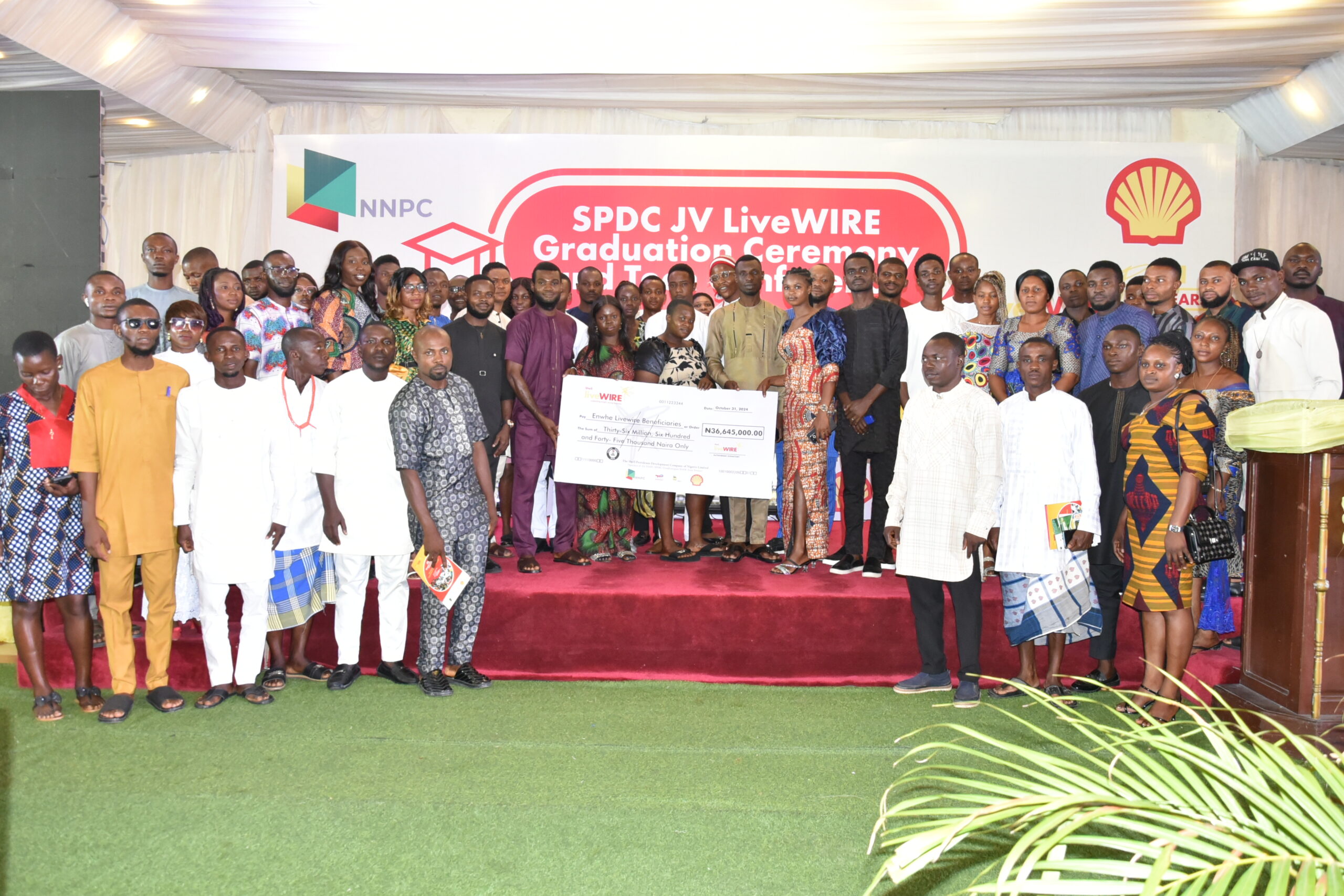Business
Cement companies in Nigeria decries shortage of power supply

ABUJA-The Chairman of the Cement Company of Northern Nigeria Plc, Alhaji Abdulsamad Rabiu, has decried the high cost of electricity to power production equipment in his factory.
Rabiu, who spoke with newsmen on the sideline of the company’s 35th Annual General Meeting, AGM, in Abuja, regretted that despite the high cost, the company is finding it difficult to access the Low Pour Fuel Oil, LPFO, to power the plant. He said,
“Energy is a very important variable and as you all know, the cost of energy to us is very high and it is ourbiggest expense even though we are located in a unique area where we enjoy some advantages.“Our expenses on energy are becoming a bit of an issue to us and not just the price but the availability because we don’t get LPFO from the refinery every day and for us to import LPFO to our plant is prohibited.
That is why we depend on Kaduna refinery to have LPFO and that is becoming a very critical issue due to the cost on a monthly basis which is about N600 million.
“What we are looking to do now is to convert to coal, and if we are able to import pet-coke which is inexpensive for now and blend it with our local coal, which has high sulphur concentrate because we may not be able to just use the local coal unless we blend.
“With that, the only challenge that I see here is transportation of the pet-coke from any port in Nigeria to Sokoto;that can be quite expensive but I think it is cheaper for us to convert to coal and hopefully by next year. “We will be able to divert parts of our energy to coal otherwise it will be very challenging for us, as Ashaka which is our biggest competitor in that part of the country has already converted to coal and they are doing very well with it. We just have to otherwise we will not be competitive and we are not far from each other.
”On expanding the plant’s capacity to 1.5 million tonnes, he noted that, “there are a lot of talks on expanding the plant because what we have even though it is doing very well is not enough.
We have an installed capacity of 600,000 tonnes, which we are doing now in the plant that is about 30 years old and still producing at that capacity. “What we are doing is that we will look at all the options on the table to continue with the expansion plan.
At a time it was very prohibitive for us to actually go to the bank and borrow money because of the high rate of interest. In any case, the kind of money we are asking for will be very challenging to get from the banks, which is about $300 million.
“We looked at the options and decided that it was a no go area because we cannot borrow $300 million at an interest rate that will eventually result to $50-60 million per annum and the project will take about three years to complete.
“The second option was to go to the market but the market at that time was very dull and right issues would have been impossible. But then again, some of our shareholders were not happy and rightfully so because the share prices were not doing well, and secondly it is in a state where nobody knew what was going to happen.”
Business
How Family-Owned Businesses Drive Global Economic Success – Halima Dangote

Family-owned businesses (FOBs) can continue to drive economic success, create value for shareholders, and positively impact their communities worldwide by staying true to their core values and adopting strategic practices that prioritise long-term growth, efficiency, and resilience.
This was part of the submission made by the Group Executive Director of Dangote Industries Limited, Halima Aliko-Dangote, during the Forbes Global CEO Conference in Bangkok, Thailand.
Halima, who is also the Executive Director, Family Office, spoke at the panel session on Family Business: Looking at the Next Frontier, opined that family-owned businesses have demonstrated exceptional resilience, navigating challenges and thriving over multiple decades.
Other speakers include the Managing Director and CEO of Worldwide Hotels, Carolyn Choo; the Managing Director of Damen Yachting, Rose Damen, a third-generation family shareholder of Damen Shipyards Group; and Co-Chairman of B.GRIMM Pharma, President of B. Grimm Joint Venture, and Board Member of B. Grimm Power, Caroline Link.
ALSO READ: CSR: Dangote Cement Fuels Education With Support Projects At Lagos Schools
According to her, success in family-owned businesses starts with shared values, goals, governance policies and alignment adding that reputation is part of ‘family capital’.
She maintained that governance structure, adherence to core values, customer satisfaction, optimization of shareholder value, meritocracy, integrity, leadership, brand equity, diversification/growth, philanthropy and preserving generational wealth play key roles to the success of our businesses.
Halima revealed that Dangote Group’s governance policies do not allow board and management to operate in silos as each business unit has at least three independent directors who offer a holistic view.
On other factors of success for Dangote Group, Halima emphasized, “We family-owned businesses have to stick to our tradition of asset rich-cash moderate or as my father will correct me, asset rich-cash poor. We as Dangote perpetuate a profitable business with strong values and strong governance structure. We make money while building our nation by contributing heavily to the global economy, creating massive jobs, thinking of our great grand kids and contributing excessively to humanity.”
Highlighting the significant contribution of FOBs to the global economy, Halima noted that studies by Mckinsey showed that they account for more than 70% of global GDP, generate annual turnovers of between $60 trillion and $70 trillion, and provide around 60% of global employment.
She stressed the crucial role these businesses play in creating jobs, sustaining communities, and driving development in sectors such as manufacturing, education, healthcare, and infrastructure across the world.
“Family-owned businesses (FOBs) have proven to be resilient, weathering challenges and thriving across multiple decades. Despite facing external pressures, many FOBs not only survive but also grow, contributing significantly to the global economy in ways that are often underestimated or overlooked,” she said.
She also pointed out that family-owned businesses often employ two key approaches in preparing the next generation for leadership roles: internal and external capacity building. Regarding internal capacity building, Halima explained that many families create internship programmes for young family members interested in taking over the business or assuming leadership positions.
“In Nigeria, we train the next generation so they can grow organically to leadership roles in family businesses. My dad’s approach is for you to start from ground up knowing you will get to leadership role if you work hard and do your job right. These experiences make it easier for you to learn the ropes and be prepared for leadership role in the future,” she pointed out.
On external capacity building, Halima discussed the practice of sending younger generations to work in non-family businesses. This approach enables them to acquire new skills, learn better processes, and gain diverse perspectives that can benefit the family business in the long run.
Halima revealed that she started her career as an Analyst at KPMG before joining Dangote Industries Limited.
The approach, she explained “removes the familiarity tag as the young generation got employed as other people and supervised to monitor their performance. This has been a common avenue business families have chosen to pursue for many years, having their next generation spend three to five years working outside the family business before eventually joining with a new set of skills and business knowledge.”
Addressing the challenges of succession planning, Halima emphasised the importance of involving the younger generation in the business early on.
She suggested that this creates a space for open communication, where the next generation can share their thoughts, ideas, and aspirations, while the senior generation provides critical information to help the next leaders make informed decisions.
She stressed the need for a balance between tradition and innovation in family-owned businesses. While tradition provides continuity and stability, she noted that innovation is vital to staying relevant and competitive in the modern marketplace.
“Successful family businesses recognise the need to adapt to changing consumer preferences, technological advancements, and market trends. Family businesses often have a wealth of experience and deep-rooted traditions. They can also benefit from external expertise and fresh perspectives,” she concluded.
Business
Shell LiveWIRE Initiative Empowers 9,000 Niger Delta Youths With Entrepreneurial Skills

A total of 9,000 youths in the Niger Delta have acquired entrepreneurial skills under the LiveWIRE programme of The Shell Petroleum Development Company of Nigeria Limited (SPDC) since it was introduced in 2003 as part of efforts to boost employment opportunities among people aged 18 – 35 years.
It was gathered that the recipients were trained and supported with start-up grants and business mentorship enabling them to launch their own businesses and become employers of labour.
The latest training, sponsored by the SPDC Joint Venture which includes the Nigerian National Petroleum Company Limited, TotalEnergies and Nigerian Agip Oil Company, involved more than 1,000 young entrepreneurs from host communities in Rivers, Bayelsa and Delta states. They graduated last week in Port Harcourt having developed business plans and pitched them to experts as part of the training. 654 trainees were selected as best-performers.
ALSO READ: CSR: Dangote Cement Fuels Education With Support Projects At Lagos Schools
“We’re delighted at the success of the LiveWIRE programme,” SPDC Director and Head Corporate Relations, Igo Weli, said at the graduation ceremony. “This training is set aside for young people from our host communities which means they can also enjoy the benefits of the programme and join the teeming number of entrepreneurs, several of whom now have the chance to participate in SPDC’s business as vendors. LIveWIRE is one of many ways through which Shell and her partners are powering progress in Nigeria.”
The graduation ceremony featured a technical conference with the theme, “Unlocking Growth: Leveraging Policies to Build an Inclusive Tech Eco System in the Niger Delta.” The keynote speaker, Iyke Kemabonta, and panelists, Soala Jumbo, Davies Awongo, Kalada Briggs, Vivien Ene and Ezieke Amaefula, challenged the beneficiaries to grow their businesses, overcome environmental challenges and enable the Niger Delta to reap the rewards of the programme.
Trainees from the 2023 Regional LiveWIRE programme from Rivers, Delta, Bayelsa, Imo, Abia, Akwa Ibom, Cross River and Edo states also joined the graduation ceremony. Beneficiaries were inducted into the LiveWIRE Alumni Group by three previous participants who now run their own businesses — Precious Adeho, Queen Esther Bolou-Ebi and Kalada Briggs. The trio encouraged the recipients to use the opportunity as launching pads into international recognition and success.
In a notable achievement, five previous beneficiaries won the LiveWIRE International “Go and Trade Enterprise Linkage Award” which enabled them to embark on trade visits to London, Dubai, Malaysia, and neighboring Ghana. Livewire Nigeria also offers beneficiaries the chance to compete for the Global Shell LiveWIRE Top Ten Innovators Award which comes with huge rewards.
LiveWIRE is Shell’s global enterprise development initiative for small businesses and is active in 18 countries. As at 2023, the programme had trained about 3,400 people and helped create more than 1,200 jobs around the world.
Business
Tinubu Moves To Transform Tragedy To Prosperity With Livestock Investment

Nigeria’s President, Bola Ahmed Tinubu is of the view that his administration’s renewed focus in driving international and local investments into livestock sector of the agricultural value-chain will end the crisis of farmer-herder clashes, eradicate hunger and poverty in addition to promoting economic prosperity.
President Tinubu said this Thursday in Rio de Janeiro, Brazil at the signing of a Letter of Intent between the Nigerian Government and the JBS S.A, one of the top three largest meat processing companies globally.
“What we are doing right now is that we are solving a problem that afflicted humanity in that part of Africa, clashes between farmers and migrating cows that have caused some life and bloodshed when there is a modern, civilized way to solve those problems and even bring a successful economy out of it.
ALSO READ: JUST IN: Senate Approves Tinubu’s ₦1.77trn Loan Request
“We are trying to turn a situation of tragedy, hopelessness into economic opportunity, see through problems and see the opportunity that is involved in it.”
The Nigerian leader called on the company to see the considerable potentials in what he called the $2.5billion livestock investment opportunities in Nigeria, especially with its huge population and tap into it, given JBS S.A’s globally recognized expertise in the area of guaranteeing food security.
“We’ve heard so much about you in terms of the reputation, and we believe in the partnership we are forging today.
“Food security is extremely important. As we talk right now, there is hunger. However, there is huge hope. And you are one of those hopes that we are looking at.”
President Tinubu told the JBS top executives that Nigeria is ready to do business with them, assuring them of a good return on their investment.
Prior to his visit to Brazil, President had commissioned a team of Nigerian officials and private sector players to take the advantage of the G20 Leaders’ Summit in Rio to conduct a study tour of Sao Paulo, Brazil and explore the opportunities in livestock development, meat processing, seed development and multiplication for key grains.
In his remarks, the Minister of Livestock Development, Idi Muhktar Mahia, who led the delegation, reported to the President that the team embarked on guided, extended and intensive tours of companies on the scale of their global reach, the integrated nature of their operations as well as the deployment of advanced technology. He added that from their interactions with various companies, JBS S.A. was chosen being the second largest meat processing company in the world with the capacity to process 33,000 cattle daily and over eight million birds daily, using advanced zero-waste practices. The company employs over 200,000 people across its subsidiaries in more than 50 countries in the world including United States, Canada, Mexico, Saudi Arabia among others.
Wesley Batista, founder and President of the JBS group, said the company is the largest employer of labour in Brazil with over $79 billion dollars revenue already in year 2024.
“We are glad to work with Nigeria to work together to develop the livestock industry there. We think it’s a good opportunity for our business in Nigeria and Africa as we believe Nigeria can be the center of supply of protein to many countries in Africa. We look forward to working with you. We are almost in December and this year is almost gone. We hope to be in Nigeria as soon as possible,” the founder and Chief Executive said.
Other members of the delegation included Minister of State Agriculture and Food Security Hon. Aliyu Sabi Abdullahi, Co-chairman Presidential Livestock Reform Committee, Professor Attahiru Jega, the Secretary of the Committee, Professor Mohammed Kuta Yahya, and the Chief Executive Officer of Nigerian Investment Promotion Council, Aisha Rimi.













